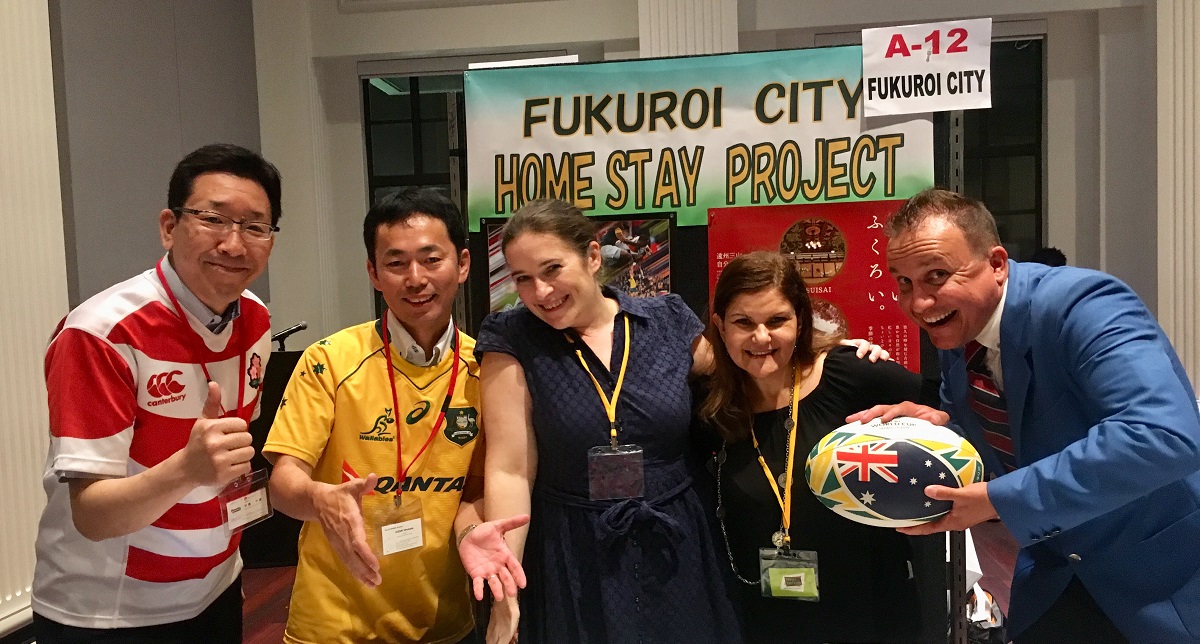Contents
こんにちは、イングリッシュ・ドクターの西澤 ロイです。
様々なレベルの英語学習者の方をゲストにお呼びして、
英語でしゃべっていただく「英語でSpeak Up!」。
今月のゲストは・・・
毎年約50ヶ国から約2,000人の外国人を受け入れている
「Homestay in Japan」の代表、
竹島 千歳さんです。
まずは、ホームステイのメリットなどについて
お話いただきました。
↓↓↓
英語でSpeak Up! #67:ホームステイで外国人を受け入れるメリットとは?
英語の書き起こし&日本語訳
外国人とどう共存していくのか
――Would you introduce yourself?
(自己紹介してくださいますか?)
Chitose: Okay, hello, everyone.
(はい、みなさんこんにちは)
My name is Chitose Takeshima.
(竹島千歳と申します)
I am the management director of homestay in Japan.
(「Homestay in Japan」の代表をしています)
Ah, these days, ah, lots of foreigners is coming to Japan.
(最近多くの外国人が日本を訪れています)
We don’t know yet, how we can live together.
(彼らとどう共存していくのか、私たちにはまだわかりません)
――Mmm.
(ふむ)
Chitose: So, that’s the reason why we welcome all of the international guests.
(これが外国からのゲストを快く受け入れる理由です)
And introducing these guest to the Japanese host families.
(そして、外国人を日本のホストファミリーに紹介する理由でもあります)
In the future, ah, we would like to live together in this country happily.
(将来この国で一緒に楽しく過ごしていけたらいいと思います)
友達になれば問題解決しやすくなる
Chitose: Then, we have to prepare our hospitality, maybe.
(そのためにはおもてなしの準備をしなければならないでしょう)
Then, maybe happened, ah, lot of accident or misunderstandings.
(もしかしたら事故や誤解が起きるかもしれませんが)
But, firstly, I would like them to become friend, then we will have more troubleshooting easily.
(でも、まず彼らと友だちになれば、そうすればトラブルも容易に解決できるようになりますから)
That’s the reason why, ah, we are doing these business.
(私たちがこのようなビジネスをしているのはそのような理由があります)
――Mmm.
(なるほど)
ホストファミリーが外国人を受け入れる理由
Chitose: So, benefit for the homestay program, ah, each families welcome guest, some of the families would like to have the opportunity speaking up English in the family.
(ホームステイプログラムで家族がゲストを招く利点としては、家族で英語を話す機会を得るためです)
Also, the for kids’ education.
(子どもの教育のためというのもあります)
So, these days English education in primary school, junior-high and high-school, is more, you know, demanded.
(最近では小学校、中学校、そして高校で英語教育の要求が高いですから)
But, the character of the Japanese people maybe shy.
(でも、日本人の性格はシャイです)
――Yeah.
(そうですね)
Chitose: In instant, I can’t say. But, um, it depends.
(一概には言えず、人によって違いますけどね)
If in the ah, in the house, in the homestay situation, so ah, nobody look it.
(それで、ホームステイの家の中での状況ですと誰も見ていません)
That’s why no hesitation, no ah… you know barriars to speaking out.
(ですから、英語を話すことにためらう必要がないのです)
Because nobody listen to it.
(誰も聞いていないので)
So, that’s why it’s more freely they can speak out.
(より自由に英語で発言できます)
So, that’s a good opportunity, anyway.
(とにかく良い機会です)
Lots of people even just kids and adult, grandfather, grandmother can speak even the bit of the English.
(子ども、大人、おじいちゃんそしておばあちゃんに至るまで、みんなが英語を話すことができます)
ひとつの単語が英語を話す突破口になる
Chitose: Ah… okay, when at the dinner time, so they serve the meals, so the guest asking the question.
(例えば、夕食のとき、ごはんを出すときにゲストが聞きますよね)
“Oh, what is the dish name?”
(この料理の名前は何ですか、と)
――Mmm.
(ふむ)
Chitose: So, maybe this is the ah, NIKUJAGA, whatever.
(そしたら、にくじゃが、とか何でもいいですが答えますよね)
So, that’s the breakthrough.
(それが突破口になります)
The first vocabulary they can speak out.
(最初の単語を発することができれば)
Then, next one is coming out smoothly.
(次の単語がスムーズに出てくるのです)
